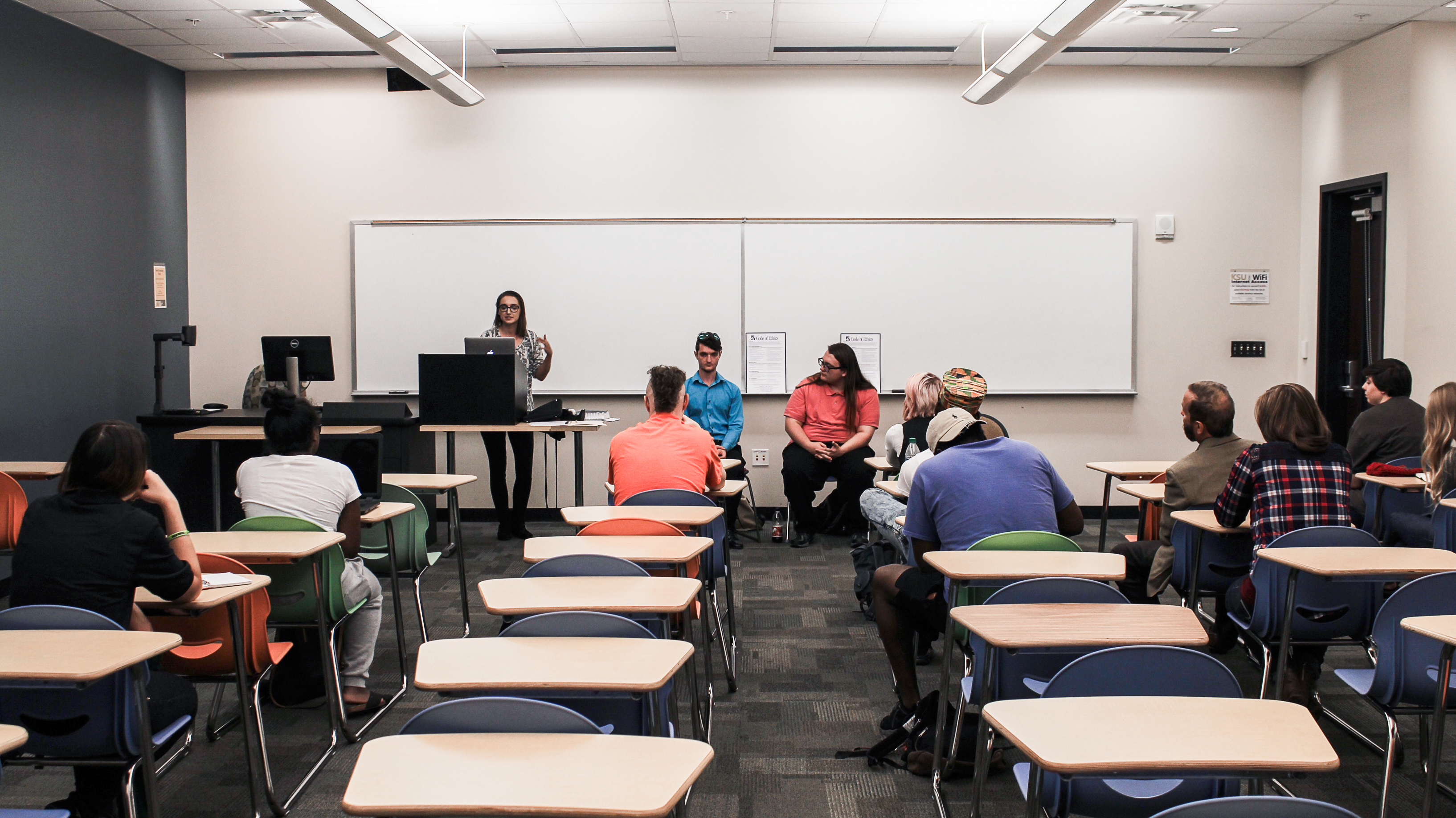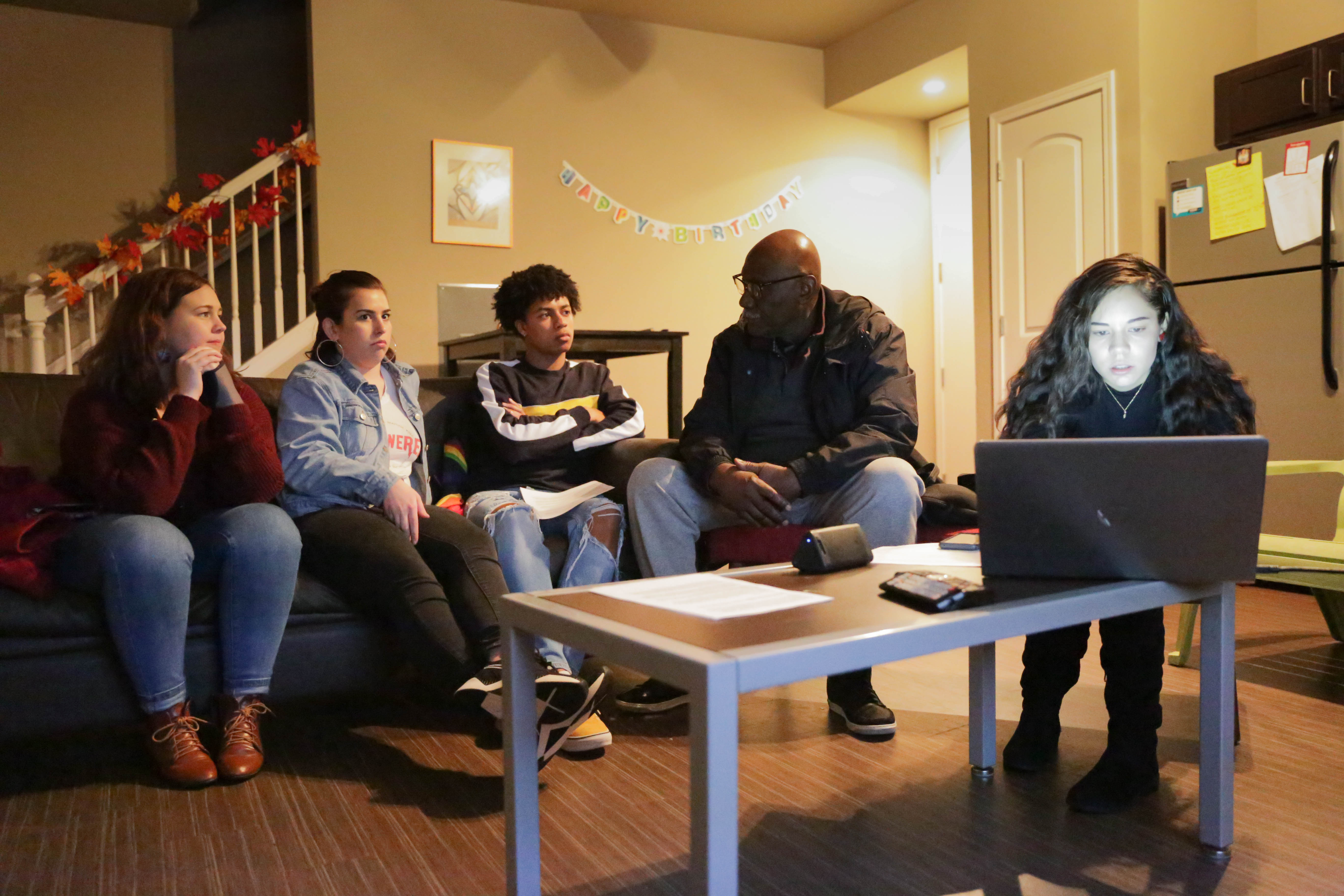Kennesaw State University’s chapter of the Society of Professional Journalists hosted a panel on Thursday, Oct. 20, to discuss and explain to students how to report on sensitive topics in journalism.
What was originally a panel about how to report on the LGBTIQ community, KSU’s SPJ decided to invite more speakers and host an event in the Social Sciences building to teach students how to write about and discuss sensitive topics that are covered in journalism. They invited three different speakers to inform students on the main topics they discussed: HIV and AIDS, LGBTIQ issues, and sexual assault.
SPJ president and senior journalism major Rebekah Fuchko explained that she thinks it is important for the new generation of journalists to know how to report on these topics.
“We’re all more open-minded, and I think teaching people how to accurately report in the newer journalism is going to start spreading from the bottom up,” Fuchko said. “Hopefully what these speakers talked about today won’t have to be talked about anymore because it will just be accurately reported on in the future.”
The panel was an opportunity for students to learn from experienced student journalists how to ethically report on topics that are not widely talked about.
“As journalists, we’re always framing stories, and so we have a responsibility to do so ethically,” SPJ Vice President Alisen Redmond said. “How a story is shaped affects how the issues are perceived by the public at large, so it’s important to get it right.”
The first speaker, senior journalism major Andrew Connard, addressed how to report on HIV in the media. He explained that the media rarely depicts HIV accurately in news stories because of the stigma created around the condition in the 1980s. He used his own experience with HIV to explain to students what to do and not to do while reporting on it.
“HIV,” Connard said. “Those three letters in that order has a tendency to strike fear in Americans, and that is due to a gross misconception as to what HIV actually is.”
Senior communication major Jessica Fisher spoke to students about how to interview and report on people in the transgender community. Fisher shared her experiences with reporters and the media as a transgender woman to give students a full understanding of what kind of questions might make a transgender person uncomfortable in an interview.
She shared her concerns about the media rarely reporting ethically on people in the transgender community.
“I think one of the things that the Associated Press as an organization gets wrong is how it handles coverage of transgender people,” Fisher said.
Redmond was the last to speak, explaining to students how to report on cases of sexual assault. She educated the crowd on how to interview victims of sexual assault without triggering them and how to handle the situation if they become too anxious or stressed while talking about the incident.
Redmond made it clear what language journalists need to use to not offend anyone or come off as insensitive to the situation.
To join the SPJ, students can go to SPJ’s website and pay a $38 fee to become a member for a year. SPJ membership guarantees discounts or free admission to upcoming SPJ events.
For KSU’s chapter of SPJ, students can request to join on Owl Life after paying the fee.



